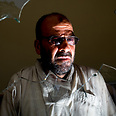
'Love to the end or hate from the heart'
Violence keeps escalating between Palestinians, settlers in West Bank, while both sides share common enemy: IDF
The summer was well felt in the Western Binyamin Region in the West Bank this week. The area, which is not usually the center of attention, has recently become a true battlefield.
Confrontations reached a peak in a mass brawl between some 30 settlers and 100 Palestinians, ending in the 13 injured from both sides. One of them is a settler who was severely injured from an iron rod blow to his head. The day after the great conflict, residents from both sides prefer to stay indoors and keep away from the sun, although the atmosphere is not at all cooler.
Related Stories:
- 300 meters of loathing
- Settlers throw stones, burn fields after terror attack
- Israeli friends of Palestinian village
"There is no Intifada but there is definitely a relapse, stone throwing, road blocking and thefts. You're driving down the road and suddenly a Molotov cocktail is thrown at you," says Avi Cohen, head secretary of theNachliel village. "We are not afraid and carry on as usual. We just want to live in peace, but someone cares to set the area ablaze. It comes from Ramallah and never stops. Just last week a woman and a child were miraculously saved from a near lynch."
The daughter of Aharon Zlatkin, 53, who is still hospitalized with a head injury, said: "They went for an evening prayer in the cross-road since every day for the past few weeks Palestinians have cast stones at every car leaving the village… Father is a gentle, thin and old man. They attacked him and beat him merciless until he lost consciousness."
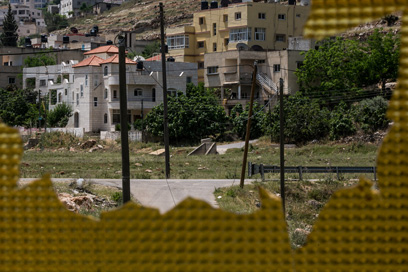
Beitillu vandalized (Photo: Ohad Zwigenberg)
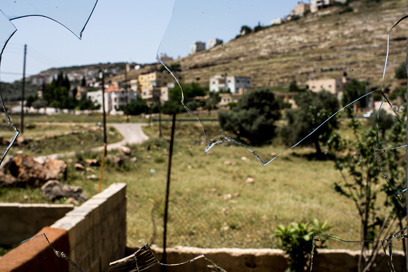
(Photo: Ohad Zwigenberg)
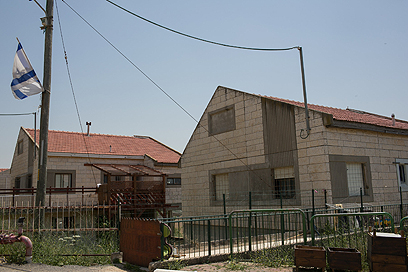
Nachliel: 'Not related to the violence' (Photo: Ohad Zwigenberg)
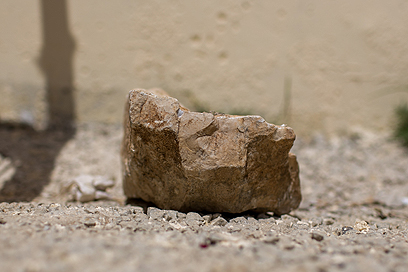
'Not protected from stone throwing' (Photo: Ohad Zwigenberg)
Moflah Abu Ziada from Palestinian village Beitillu greeted us in the scarred entrance to his home. The recent "price tag" is still etched on the outer walls; the shattered windows have not yet been fixed and are the testimony for last week's vandalization.
"Beitillu is a village of peace. We are not looking for trouble but we will not sit idly by as they throw stones at us," he says.
Salah Abu Ziada, a relative residing in the upper floor of the house, stresses that the atmosphere in the region is not good. "It does not end with just 'price tags'. They come to the fields, take fruit, take down trees and make a mess. They are human – why take down trees?"
Palestinian workers building Nachliel (Photo: Ohad Zwigenberg)
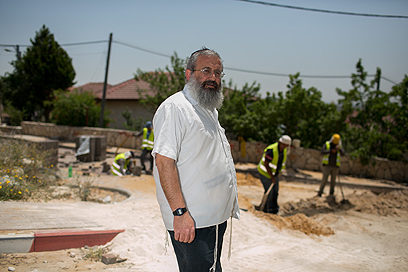
Workers are also harassed (Photo: Ohad Zwigenberg)
Nachliel rejects the finger pointed at them, blaming them for the violence. The settlement proudly points the finger right back at the Palestinian construction workers working in it. However, in more open discussions, there were individuals admitting that the workers too suffer from harassment and bullying.
"It serves no purpose and is not related to the village, we live in peace with them, they work for us. I do not understand why cause anyone damage and tear down trees," says Cohen, who suggests directing the anger at other directions.
"In my opinion, a 'price tag' is to stand in front the house of the judge who released the terrorist who murdered in Tapuach from custody, or in front of the house of the Central Command Chief, demanding he starts doing his job. Any other actions do not accomplish anything."
Where is the military?
Cohen's remarks against the military judge and Central Command Chief Major-General Nitzan Alon embody a general feeling among settlers that things are getting out of hand. As evidence they show a rising graph of security incidents in the narrow road between Nachliel, Beitillu and the rest of the settlements in the area.
Images of bleeding injuries, vehicles stuck on stone roadblocks and attacked with Molotov cocktails and shattered windshields are quite common. According to Cohen, the high levels of decision-makers accept the reality far too easily.
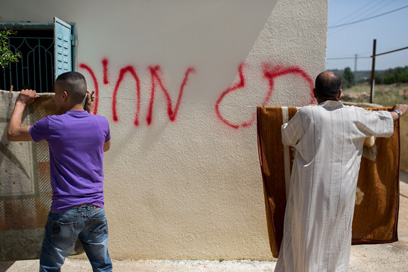
Writing on the wall (Photo: Ohad Zwigenberg)
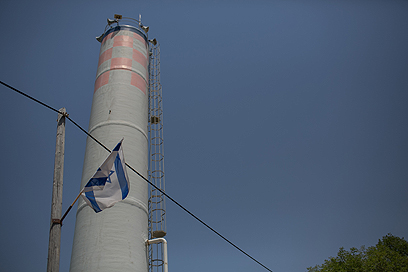
Nachliel suggests: Give Palestinians full rights (Photo: Ohad Zwigenberg)
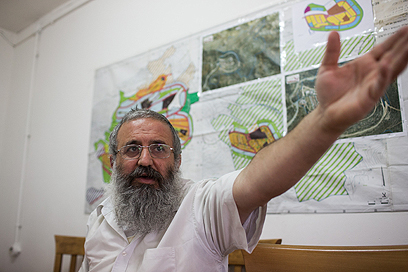
Avi Cohen. 'The system does not keep us safe' (Photo: Ohad Zwigenberg)
"We are 15 minutes away from the city of Modiin and 30 minutes from Ben-Gurion Airport - why aren't they protecting us? We're not here for no reason, we secure the rest by taking in everything. We did not take anyone's lands and what is theirs – is theirs. Why don't we deserve protection? Our problem is not the Arabs, it is the system that does not keep us safe," he accuses.
It seems we have found what unites residents of Beitillu and Nachliel: the claim that those responsible are not doing enough to cool things down. Apart from complaints towards the IDF, the Palestinians and their neighboring settlers disagree on almost every point.
"The military consistently favors the settlers," says Salah. "We realize Israel is trying to prevent 'price tags' but we demand greater military presence in the area."
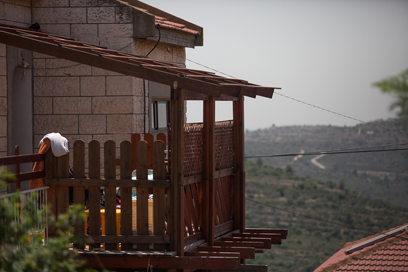
Nachliel balcony (Photo: Ohad Zwigenberg)
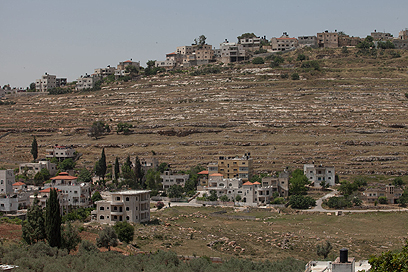
Beitillu: IDF favors the settlers (Photo: Ohad Zwigenberg)
Cohen also points out military action as a game changer in this situation. "The sense is that the army is trying, but you don't see them enough in the past few months. It is as if the army is saying – I'm not here. We say – let the IDF win and do what it does best. If there's a point of friction, send a patrol over. Either the Central Command chief realizes he has failed and leaves or gets himself together."
The IDF Spokesperson's Unit said in response, "As a result of a fruitful cooperation between the security forces, the number of incidents in the area has gone down by 50% in comparison to the previous four months. IDF forces in the area are working endlessly to protect the area and keep the stability. The IDF will continue to collaborate with the rest of the security forces in order to eliminate these incidents."
One state
What about the future? Both Beitillu and Nachliel do not overflow with optimism, but leave a window open for hope. "We have Jewish friends that are like brothers to us," says Abu Ziada. "We don't have a middle – either you love to the end or hate from the heart."
Cohen also concludes that "we do not want this violence, and I say with certainty that they are not interested in it either. From my end, the solution is to validate the sovereignty and give them full rights. Let them have whatever they need – our lives would be better. Maybe it won't happen today, but eventually that is the solution."
The words seem kind, but both sides conceal their contribution to the violence and do not deal with it head on. Beitillu barely admits to taking part in throwing stones, and Nachlieli denies that vandals come from the village.
The reality proves the opposite, and too often the area returns to the headlines in unflattering contexts and may turn local fire into a serious and grave escalation in the West Bank.
Elior Levy contributed to this report











